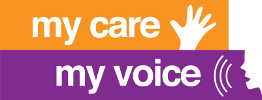- How do I get support with my mental and emotional health?
- Are there mental health support services specifically for people living with HIV?
How do I get support with my mental and emotional health?
You should receive care and support which promotes your mental and emotional well-being and meets your needs as someone living with HIV.1 
This means you can expect properly trained staff in your HIV clinic to check up on your mental and emotional well-being on a regular basis to ensure any needs can be identified and met.1 
When you are first diagnosed, you should be offered appropriate psychological and emotional support ideally within 48 hours of diagnosis and no later than 2 weeks after diagnosis. Staff should also assess your mental, cognitive and emotional well-being within 3 months of you getting your HIV diagnosis, and at least once a year after that.1 
But your healthcare team should also be checking that you are OK during times which are known to be stressful or difficult such as relationship breakdown, bereavement and periods of financial stress.2 
You can also raise issues about your mental or emotional state with your HIV clinic at any time. For example, if you are feeling stressed, depressed or anxious. Your HIV clinic will make sure you are properly assessed and you get the help and support you need.2 
You can also ask for help from HIV community and voluntary organisations (charities). Many have emotional support services such as peer support (getting help from other people living with HIV) and counselling. In most cases you can contact these directly. Your clinic may have posters or other contact information or you can go online to find one in your local area.
[1] BPS/BHIVA/MEDFASH. Standards for Psychological Support for People Living with HIV.http://www.bps.org.uk/standards-psychological-support-adults-living-hiv
[2] BHIVA Standards of Care – Standard 6 – Psychological care. http://www.bhiva.org/standards-of-care-2012.aspx
Are there mental health support services specifically for people living with HIV?
You should receive psychological support which is suitable for your needs. This may be provided by your HIV clinic or you may also be referred to other professionals who can help. In some areas there may be HIV-specific services but in others you will be referred to general community mental health services.1 
There are Standards for Psychological Support for Adults Living with HIV which outline the range of services which may be relevant to you. This covers a full spectrum of psychological and emotional support from attending a peer support group to seeing a psychiatrist. You can also download a patient leaflet about the Standards which explains what support you should be able to access.
The Standards make clear that sometimes psychological support comes from peers (other people living with HIV) and community providers (such as local HIV charities), as well as healthcare professionals.
[1] BPS/BHIVA/MEDFASH. Standards for Psychological Support for People Living with HIV. http://www.bps.org.uk/standards-psychological-support-adults-living-hiv

 A right you have as a user of a service
A right you have as a user of a service This is advice on how to get the most out of your services
This is advice on how to get the most out of your services






